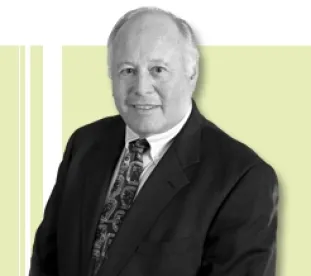In 2012, Steven Glovsky needed 1,000 signatures in order to be placed on the ballot for a seat on the Governor’s Council. He went to the Roche Brothers supermarket in Westwood and asked permission to stand outside the door to collect signatures. The supermarket is a free-standing building on a 5 acre site and the store manager informed Glovsky that the store had a non-solicitation policy. Glovsky brought suit against the store under the Massachusetts Civil Rights Act and when the trial court dismissed his action, he appealed and the SJC agreed to hear the case on direct appellate review.

The case of Glovsky v. Roche Bros. Supermarkets, Inc. poses the question whether an owner’s constitutional private property rights must give way to an individual’s constitutional right to collect nomination signatures for public office. When the case is argued before the SJC some time early next year, the SJC will be guided by its own 1983 decision of Batchelder v. Allied Stores Int’l, Inc., as well as by the United States Supreme Court’s 1980 decision in Pruneyard Shopping Center v. Robins.
In both those cases, the constitutional rights of the individuals distributing hand bills and soliciting signatures were deemed to supersede the private property rights of the shopping mall owners on whose properties the activities occurred. Both of those cases, however, involved large shopping center malls containing 75-100 stores, on massive acreage, that are designed to lure a very large number of people not just to shop, but also to socialize and congregate in a “congenial environment … of numerous amenities,” recreating in effect a traditional “downtown”. In Batchelder, the shopping center in question was the Northshore Mall, situated on 84 acres with nearly 100 stores, extensive common areas and weekly special events that invited the public to gather and linger on the premises so as to constitute the functional equivalent of a public space. In fact, the Northshore Mall was said to draw 175,000-200,000 individuals per week at the time of the SJC’s decision, which works out to be 25,000-28,500 people per day, whereas the entire present population of Westwood, where the Roche Brothers supermarket is located, is only about 14,000.
So the question before the SJC is whether the careful balancing of private property rights with the state’s Declaration of Rights that was applied to these major shopping centers should also be applied to any retail store that invites in the public, even if the retail store stands by itself and contains a mere 5 acres, most of which is dedicated to parking for the retail customers.
I would submit that the holdings and rationale behind the Pruneyard and Batchelder decisions should not and cannot be applied to the Roche Brothers supermarket in Westwood or to any other small retailer or strip shopping mall that may contain anywhere from 1 to 10 stores. To do so would severely impinge on the constitutional property rights of landowners who should have the absolute right to govern and control the nature and scope of activities that may occur on their property. The fundamental basis of both thePruneyard and Batchelder holdings is that these large shopping centers and their management encourage the public not merely to shop, but to visit and congregate in large numbers, including for social, charitable, civic and entertainment purposes other than mere shopping, and this informal dedication to the public of these common areas causes them to function as an actual downtown or public meeting place. In such an environment, one can understand why the courts would be reluctant to prevent individuals from exercising their constitutional rights in a public meeting area to distribute materials and seek signatures for various causes. Unlike these large malls, however, retail supermarkets like Roche Brothers in Westwood and other small shopping centers use their common areas solely in a functional manner to support the public in shopping in the various retail stores.
If it were important for Mr. Glovsky to collect nomination signatures for the Governor’s Council, he could have done so at the Legacy Mall in Dedham (74 stores), the Emerald Square Mall in North Attleboro (over 140 stores), the Natick Mall in Natick (with 200 stores), the South Shore Plaza in Braintree (with over 180 stores) or the Wrentham Village Premium Outlets in Wrentham (with 170 stores), all of which are in the district of the Governor’s Council seat that Glovsky was seeking and all of which would certainly be governed by the holding of Batchelder.
The retail industry awaits the SJC’s decision, but any holding which supports Glovsky’s position will clearly erode private property rights and create a new paradigm for how retail stores must accommodate the public’s use of their properties.




 />i
/>i
